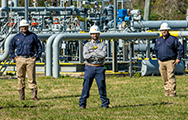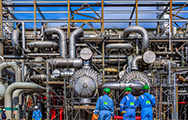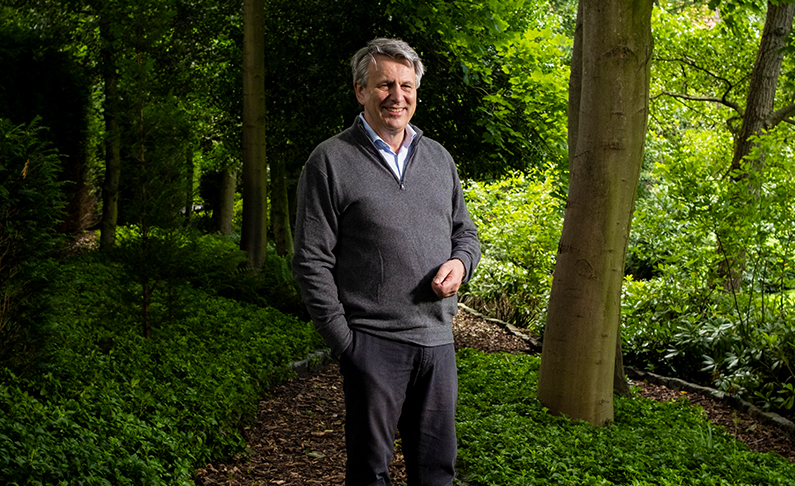Collaborations and stakeholder engagement
We work with governments, non-governmental organisations, industry bodies, national oil and gas companies and many other businesses. These collaborations range from working together on a project to sponsoring a particular group. These efforts help us learn, share best practice, achieve specific objectives, set future goals and build trust with our stakeholders.
For example, we work with Building Responsibly, a group of companies that collaborate to promote the rights and welfare of workers across the engineering and construction industries (see Respecting human rights).
Working together to lower emissions
We are a founding member of the Energy Transitions Commission, which brings together leaders from other energy companies, financial institutions, wider industry partners and civil society groups. The commission aims to achieve net-zero emissions by mid-century, in line with the Paris Agreement climate goal of limiting global warming to well below two degrees Celsius and ideally to 1.5°C.
In 2020, the commission released the Making Mission Possible: Delivering A Net-Zero Economy report. Shell welcomes the report, which sets out the milestones in the 2020s to put the commission’s 2050 targets within reach.
Shell also worked with the UN Environment Programme, Environmental Defense Fund, energy businesses and others to develop an updated Oil & Gas Methane Partnership 2.0 reporting framework for tracking methane emissions. The framework agreement was signed in 2020, and makes it easier for officials, investors and the public to accurately track and compare performance across companies. European Union policymakers are considering using it as a basis for legislation. Shell was also part of a group of energy companies and environmental organisations which shared recommendations with the European Commission on how to reduce methane emissions.
We also work with the Oil and Gas Climate Initiative, a voluntary CEO-led group that focuses on carbon capture, utilisation and storage, methane detection and reduction, as well as energy efficiency. In 2020, the group announced a new target to reduce the collective average carbon intensity of member companies’ aggregated upstream oil and gas operations to between 20 kilograms and 21 kilograms of carbon dioxide equivalent per barrel of oil equivalent by 2025. This target is consistent with the reduction needed across the oil and gas industry by 2025 to support the goals of the Paris Agreement.
Collaborations overview
The table shows some of the organisations that we collaborate with globally on topics such as environmental sustainability and technology. Shell also works with many community-based organisations.
- Environmental sustainability and climate change
- Human rights and social responsibility
- Safety and technical standards
- Technology and innovation
- Transparency and governance




